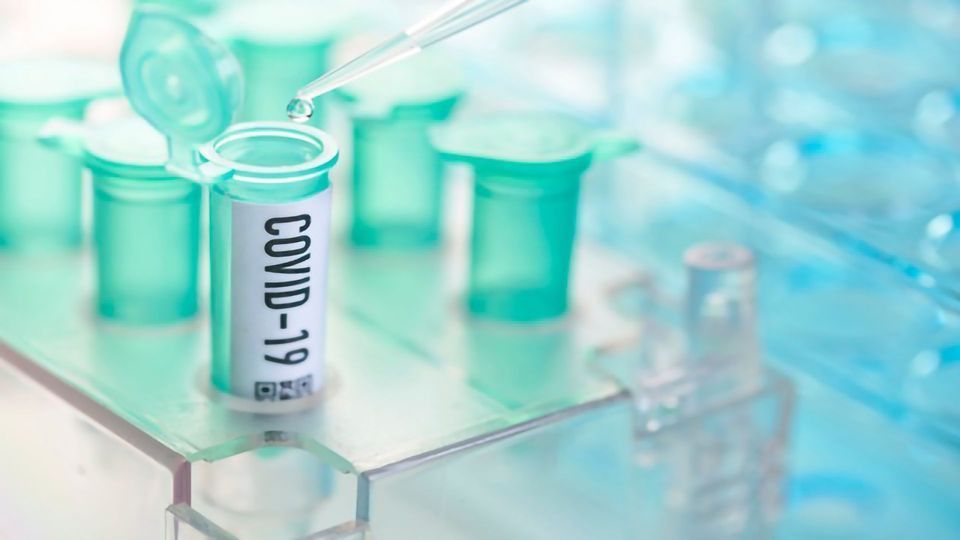Sartorius Supports COVID-19 Vaccine Development Efforts

Complete the form below to unlock access to ALL audio articles.
Sartorius recently announced that it has supported CanSino Biologics Inc. in the development of a vaccine candidate against SARS-CoV-2. The candidate is a recombinant vaccine and Sartorius’ BIOSTAT® STR single-use bioreactor system was utilized for its upstream preparation, enabling rapid linear amplification of the adenovirus vector (Ad5-nCoV) and reducing development timeframes.
Technology Networks spoke with Amelie Boulais, Vaccine Marketing Manager, Sartorius, to find out more about how Sartorius is supporting vaccine development at this critical time and the power of collaboration.
Molly Campbell (MC): Please can you tell us about how the vaccine candidate that has been developed against SARS-CoV-2, Ad5-nCoV, works?
Amelie Boulais (AB): The Ad5-nCoV vaccine developed by CanSino is what we call a viral vector-based vaccine. These vaccines contain viruses, here an adenovirus type 5, that have been genetically engineered to carry the gene coding for the antigen in the patient’s body. These vaccines are extremely promising for two reasons:
- They elicit a strong immune response, and since the first viral vector vaccines made it to the market for the Ebola outbreak, we now have a track record to demonstrate their efficacy
- They are based on a pre-existing manufacturing platform
Companies usually specialize in manufacturing one viral vector. They will already have a development and manufacturing platform dedicated to this vector, and they have developed strong experience and expertise on this platform. It allows them to develop new vaccine candidates at a faster rate.
We have been closely monitoring the success of companies developing viral vector vaccines in past years. Many have been extremely promising. In fact, we have identified more than 200 companies developing this type of vaccine, CanSino being one of them. We are not surprised to see that 20% of the vaccine candidates that are being developed to fight the COVID-19 outbreak are viral vector-based vaccines, and that these vaccines are going to be the first that make it to the clinic.
MC: Sartorius' BIOSTAT® STR single-use bioreactor system was utilized for the upstream preparation of the recombinant vaccine. Please can you tell us more about the system and how it reduced preparation time?
AB: The BIOSTAT® STR system is comprised of a stainless steel bag holder and a Flexsafe STR bag including advanced single-use sensors and a control system. It offers all the advantages of a conventional bioreactor in a fully single-use solution.
The benefits of single-use solutions are now well known in the industry:
- You can get your facility running faster (a startup time of 12 months on average instead of 24)
- There is a shorter turnaround time because there’s no need to clean or steam equipment, meaning you can process more batches per year
- You can modify the capacity of the bioreactor to adjust production volume on demand
- They have a reduce footprint
- They require a smaller capital investment
It is a platform that can be used for the production of viruses and viral vectors, on suspension cells or adherent cells growing on microcarriers.
The Biostat STR also offers the opportunity to accelerate development. The vessel design among ambr bioreactors, reusable benchtop bioreactors and the Biostat STR are geometrically similar. This means the platform seamlessly scales up from early process development to commercial production.
MC: What are the biggest challenges the industry is facing in the development of a vaccine against COVID-19?
AB: The biggest challenge is the time pressure. We are very likely witnessing the fastest vaccine development that has ever occurred in the industry.
Vaccine companies are developing vaccines as fast as they can. Therefore, they might not develop the perfect process with the highest productivity. It's essential to ensure efficacy, quality and safety. As a key supplier of vaccine developers, we are bringing our experience and technical solutions to support them all along this race.
Once vaccine candidates make it through clinical trials, the next challenge will be to produce the vaccines at a large scale very rapidly. Vaccine manufacturers will have to ramp up production and might have to adapt existing technologies. Here again, the use of single-use solutions is key to meeting the timelines.
MC: How important is industry collaboration in the development of therapeutics and against COVID-19?
AB: Collaboration is of the essence. Collaborations between developers, manufacturers and suppliers have already started. Some have the expertise to develop a promising vaccine candidate, while others have the manufacturing capacity. Suppliers can bring their technical expertise to solve technical issues, not only to rapidly deliver needed technologies for the development of vaccines, but also to ensure assurance of quality supply when large scale production starts. This SARS-CoV-2 virus is new to us; we do not know yet which vaccine strategy will work. We need to support all vaccine candidates to make sure that the right one will make it to the market.
Amelie Boulais, Vaccine Marketing Manager, Sartorius, was speaking with Molly Campbell, Science Writer, Technology Networks.


